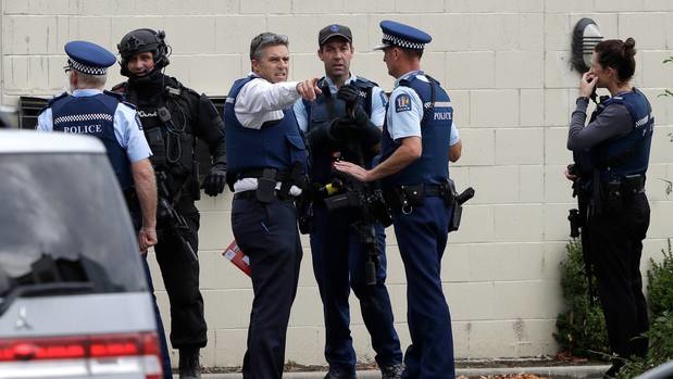
A clinical psychologist has warned the public not to watch horrific footage of the massacre in a Christchurch mosque today.
Ian Lambie shared the message, along with advice on how to cope after at least two gunmen opened fire at two central Christchurch mosques. Dozens are feared dead.
One gunman filmed as he shot victims in one of the mosques and the footage has been shared widely on social media.
"Don't watch the video," Lambie said.
"To watch it is traumatising ... it's not going to help. And as well as being unhelpful it's voyeuristic and totally an awful thing to do."
Feeling anxious, not wanting to leave home, losing interest in every day activities and having trouble sleeping are signs someone might not be coping.
Those feelings were normal initially, he said.
"We are going to feel some of these things, it's when it goes on after a couple of weeks [that it's a concern]."
He encouraged people to look out for each other, especially those in Christchurch.
"Just show kindness and compassion to people."
"Someone might say 'I'm fine' the first day but in a few weeks be affected."
Other sources of support could be churches and helplines, such as Lifeline on 0800 543 354.
Those needing more help were best to go to their GP, who could refer them on to mental health services.
There was no shame in asking for help, Lambie said.
"Don't ever be embarrassed to ask for help. It's a very normal reaction to an horrific situation."
And if you thought someone else might need help then also don't be afraid to ask them if they're okay, he said.
"It's better to ask than not."
Kids' responses to the events could include trouble sleeping, being fearful of things such as the dark, and not wanting to eat.
Reassurance and trying to return to everyday life as soon as possible was a good way to support children.
What to tell children about the massacres depended on their age and the individual child, but the less they were told the better, he said.
If they ask, answers should be limited to factual information and avoiding making that information "more gruesome than they need to know".
How to cope
- Don't watch the footage circulating online of the massacre
- Check on friends, family and neighbours, especially those in Christchurch
- Tell children as little as possible, but if they ask keep answers simple and factual
- It's okay to ask for help - your GP is the best place to start
Take your Radio, Podcasts and Music with you









